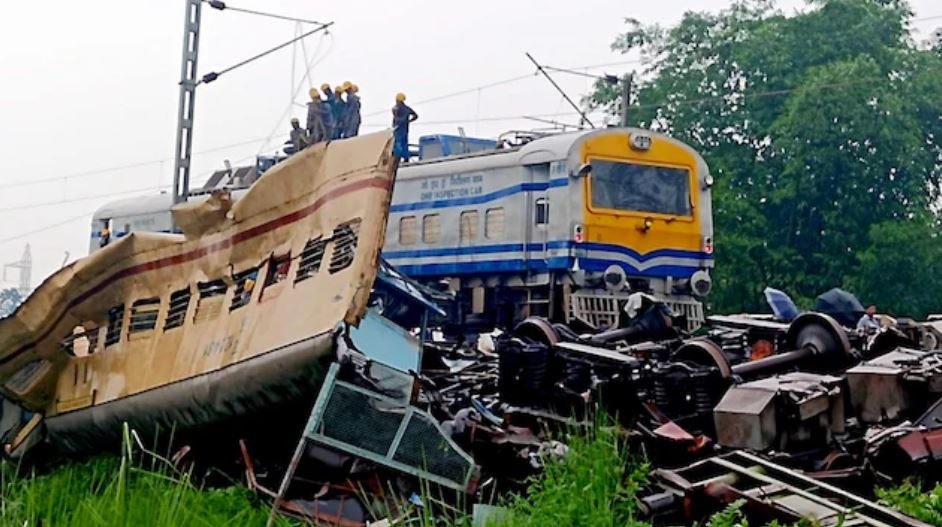Kanchanjunga Express Accident Unveils Glaring Safety Gaps
In a grim reminder of the vulnerabilities within the railway system, the tragic collision involving the Kanchanjunga Express and a goods train on June 17, 2024, in West Bengal’s Darjeeling district, has culminated in a significant safety inquiry. The incident, which claimed ten lives and caused extensive damage, has underscored the need for stringent safety measures and enhanced oversight. The Commissioner of Railway Safety (CRS) has conducted a thorough investigation, and a final report is eagerly awaited to shed light on the precise causes and recommend preventive measures.
Investigation Insights and Immediate Actions
The CRS inquiry has meticulously examined the accident, focusing on key lapses that led to the collision. Notably, three railway employees—the Rangapani Station superintendent, the signal technician, and the goods train guard—have been suspended. This suspension, as clarified by a senior Railway official, is not punitive but a procedural step to facilitate their availability for the ongoing inquiry. The official emphasized that definitive actions will be taken based on the inquiry’s findings.
The accident occurred between Rangapani and Chattarhat stations of the Katihar Division of Northeast Frontier Railway. At 8:55 a.m. on June 17, a high-speed container-carrying goods train collided with the Kanchanjunga Express, which was on the same track, resulting in the derailment of four passenger coaches and five goods train wagons. Initial investigations have pointed to potential failures in the automatic signal system, which necessitated manual memos issued by the Rangapani station master.
Enhancing Safety and Working Conditions
In the wake of this tragic incident, the Railway authorities have embarked on a comprehensive renovation of running rooms dedicated to loco-pilots and assistant loco-pilots. The Eastern Railway has issued a statement highlighting the critical nature of a loco-pilot’s job, which demands unwavering focus and mental acuity. The renovation initiative aims to provide state-of-the-art facilities that ensure loco-pilots are well-rested and mentally prepared for their responsibilities.
“This initiative aims to enhance the working conditions and well-being of loco-pilots and assistant loco-pilots, ensuring they are well-rested and mentally prepared for their vital responsibilities,” the Eastern Railway’s press statement emphasized. The statement further elaborated on the extensive renovations undertaken to create facilities that cater to the holistic needs of loco-pilots, recognizing the immense sensitivity and responsibility of their role.
Future Steps Towards Railway Safety
As the CRS final report is anticipated, it is crucial to reflect on the broader implications of this accident. The railway system’s integrity and safety protocols must be re-evaluated to prevent such tragedies. The findings of the CRS inquiry are expected to offer critical insights into the systemic flaws and propose actionable recommendations to fortify railway safety.
The immediate suspension of involved employees, the focus on upgrading facilities for loco-pilots, and the heightened scrutiny of signaling systems are steps in the right direction. However, the real test lies in the implementation of robust safety measures that can withstand the complexities of railway operations and ensure passenger safety.
Key Learning Points:
| Learning Point | Details |
|---|---|
| Immediate Suspensions | Three railway employees suspended to aid the inquiry. |
| CRS Inquiry Focus | Examination of signaling failures and procedural lapses. |
| Safety and Well-being Initiatives | Comprehensive renovation of running rooms for loco-pilots. |
| Importance of Mental Preparedness | Emphasis on ensuring loco-pilots are well-rested and mentally prepared. |
| Anticipation of CRS Final Report | Awaiting the final report for detailed insights and recommendations. |

Sunil Garnayak is an expert in Indian news with extensive knowledge of the nation’s political, social, and economic landscape and international relations. With years of experience in journalism, Sunil delivers in-depth analysis and accurate reporting that keeps readers informed about the latest developments in India. His commitment to factual accuracy and nuanced storytelling ensures that his articles provide valuable insights into the country’s most pressing issues.



